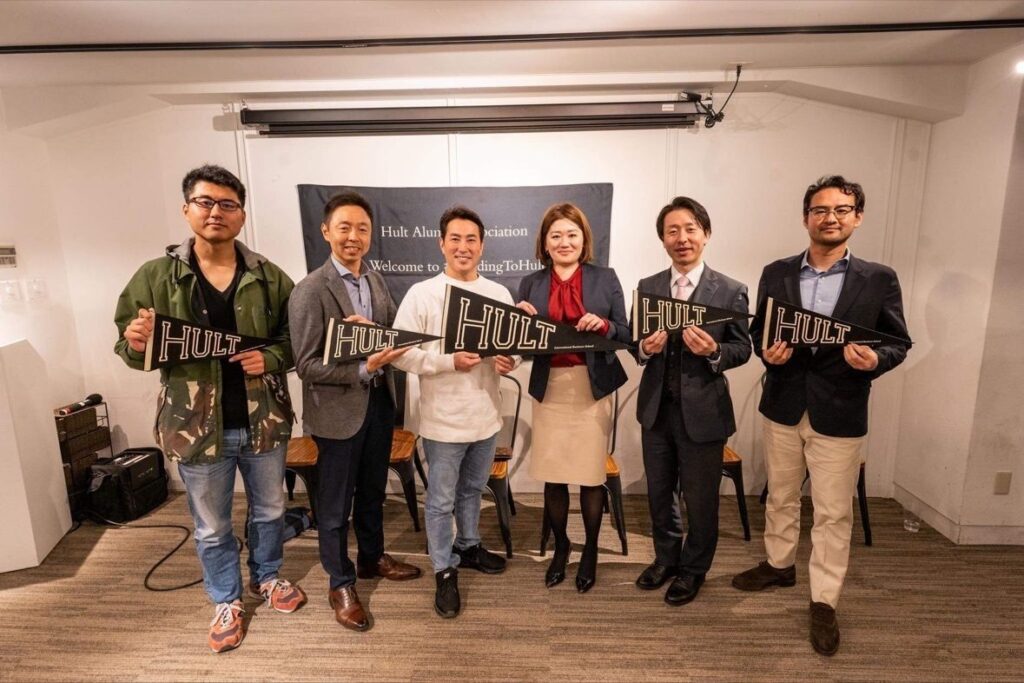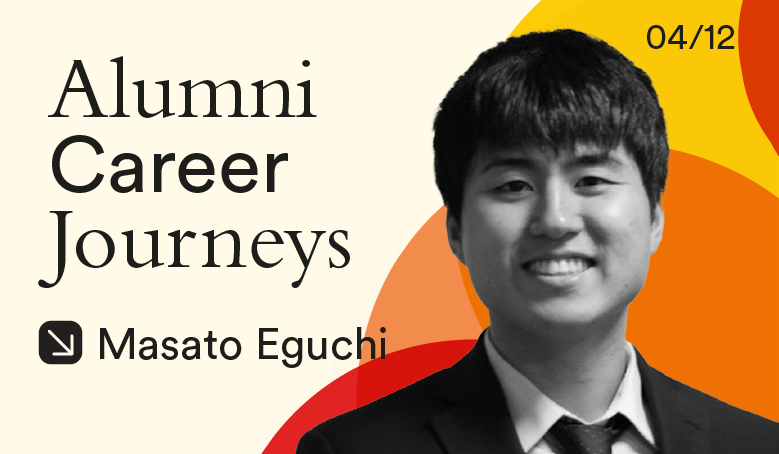When Class of 2019 Dual Degree Master’s International Business and Master’s in Business Analytics alum Masato Eguchi came to Hult, he had two professional goals:
1. Become a data scientist
2. Land a job at Apple
Today, he’s a Data Visualization Engineer for Apple, living the dream he’d imagined for himself in the Bay Area. We had the chance to chat with Masato as part of our 12/12 Alumni Career Journeys series, featuring 12 inspiring Hult graduates over 12 months.
Just because he’s achieved his initial career aims, doesn’t mean his success story ends here. From his undergraduate studies in his home country of Japan to earning his black belt in Judo and relocating across the globe, Masato opened up about his journey so far and what the future might hold.
Hult: Tell us a bit about yourself and your background.
Masato: I was born and raised in Japan and spent my first 23 years there. I graduated high school and went to university in Tokyo, where I studied intercultural communication, which is like language, linguistics, and cultural understanding.
But, I decided that wasn’t for me. I was wondering what to do next when a statistics professor I had at the time told me that data science is cool and will be growing in the next decade. So, I decided to study a master’s degree abroad because, at the time, there were not many schools in Japan offering the course I wanted. I was interested in studying in the US, but I didn’t know where.
H: What attracted you to Hult?
M: I spoke to Hult’s enrollment advisors, and they seemed really nice and professional throughout the whole process. I didn’t have the same experience contacting other universities—they didn’t seem so professional. I thought business schools should be good at business themselves, so I joined Hult.
I thought business schools should be good at business themselves, so I joined Hult.
H: Did you have a career path in mind when you started your master’s?
M: Yes, I had two dreams. One was to be a data scientist and the other was to work for Apple. I liked Apple products and have used a Mac since my time as an undergrad and always thought, “they are amazing—I want to work for them!”
I’m happy to say that both dreams came true.


H: How did your time at Hult help you to land your dream job?
M: The careers team in San Francisco was really amazing. I told my career advisor early on that I wanted to work for Big Tech, preferably Apple. I was fresh out of undergrad, having studied international communication, so it wasn’t an obvious move, but she helped me rewrite my LinkedIn profile and think differently about my background and experience.
She picked up on the fact that I was an athlete—I have a blackbelt in Judo. She said, “This is something employers will be interested in. It shows you’re committed and you make an effort, so you should definitely write about that on your profile.”
She also connected me with alumni and advised me to socialize a lot. She taught me how to network and build connections from the very beginning. Eventually, the dots all connected and I landed the job.
My career advisor taught me how to network and build connections from the very beginning. Eventually, the dots all connected and I landed the job.
H: Can you explain a bit about what you do as a data scientist at Apple?
M: As a Data Visualization Engineer, I focus on visualizing data. What does that mean? Let’s say we have a huge chunk of data from a database, which on its own doesn’t really make any sense. My job is to prepare that data in a way that people can see what it is and easily take away the useful information.
I use a business intelligence tool called Tableau, which visualizes data and can turn it into a report that can show, for example, that this particular aspect of the business is doing well, or this is where we should make changes or invest more. This report is then used by the management to make business decisions. So I’m the middle person connecting data with the people making the decisions.
H: Any advice to current or prospective students who might be interested in a future in business analytics?
M: From a tech side of things, SQL is in high demand. It’s easy to learn in a couple of months and will help you pass interviews. But more importantly, I would say studying the tech shouldn’t be your main focus. Building your network—meeting people, actually making relationships, rather than just exchanging business cards or connecting on LinkedIn, is so much more valuable. That’s how I got here.
It’s important to have the hard skills, but I think students often undervalue the importance of networking and instead focus on ‘What technical skills should I study?’ My advice is not to worry too much about that.
Studying the tech shouldn’t be your main focus. Building your network—meeting people is so much more valuable. That’s how I got here.
H: Do you see AI having a big impact in your sector?
M: Potentially, yes. I think about half of what I do will be easily replaced by AI in the next five to eight years.
The simple and repetitive parts are what will be replaced first, so people working in data shouldn’t be complacent once they have a job—keep learning, keep growing, deepen your understanding, and expand your experience.
H: Now you’ve achieved your two big career goals, what’s next?
M: It might seem a bit random, but I have a couple of future dreams. One is that I want to have a restaurant here in the Bay Area—I want to do Japanese fried chicken.
I like cooking and I like eating, but I also like the business side, and Hult gave me a good introduction to the business world. It’s obviously unrelated to what I’m doing now, but I see potential in the idea. Japanese food is highly valued and in demand here, and people are willing to pay extra for it.
The other dream is that I want to become an architect. That was actually my first childhood career dream. Then I went to college and decided to do the international thing, but I always thought, at some point in my life, I could go back and become an architect. So one day, I’m going to go back to Japan and join an architecture school.
H: Congratulations on your amazing career journey so far, Masato, and all the best for the future! We have no doubt you’ll achieve the new goals you’ve set for yourself—we look forward to one day enjoying your food and admiring your architecture.


